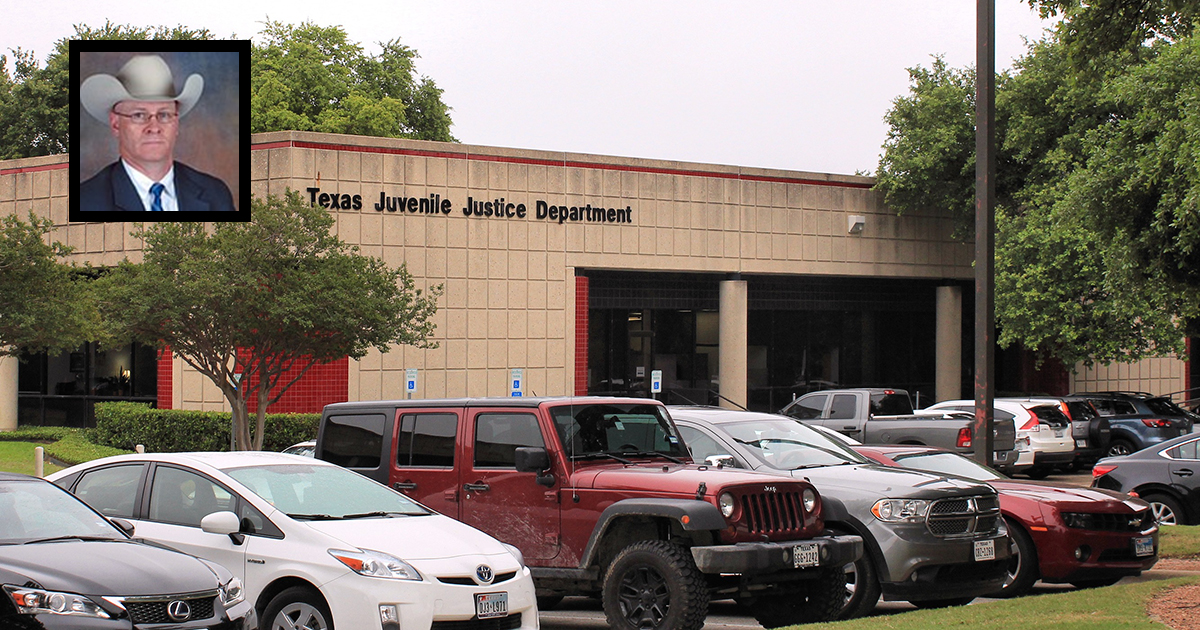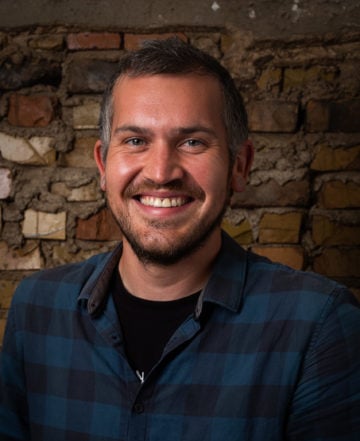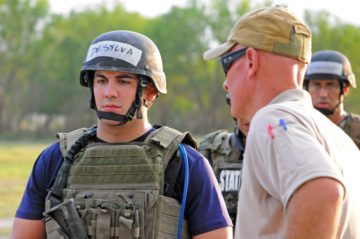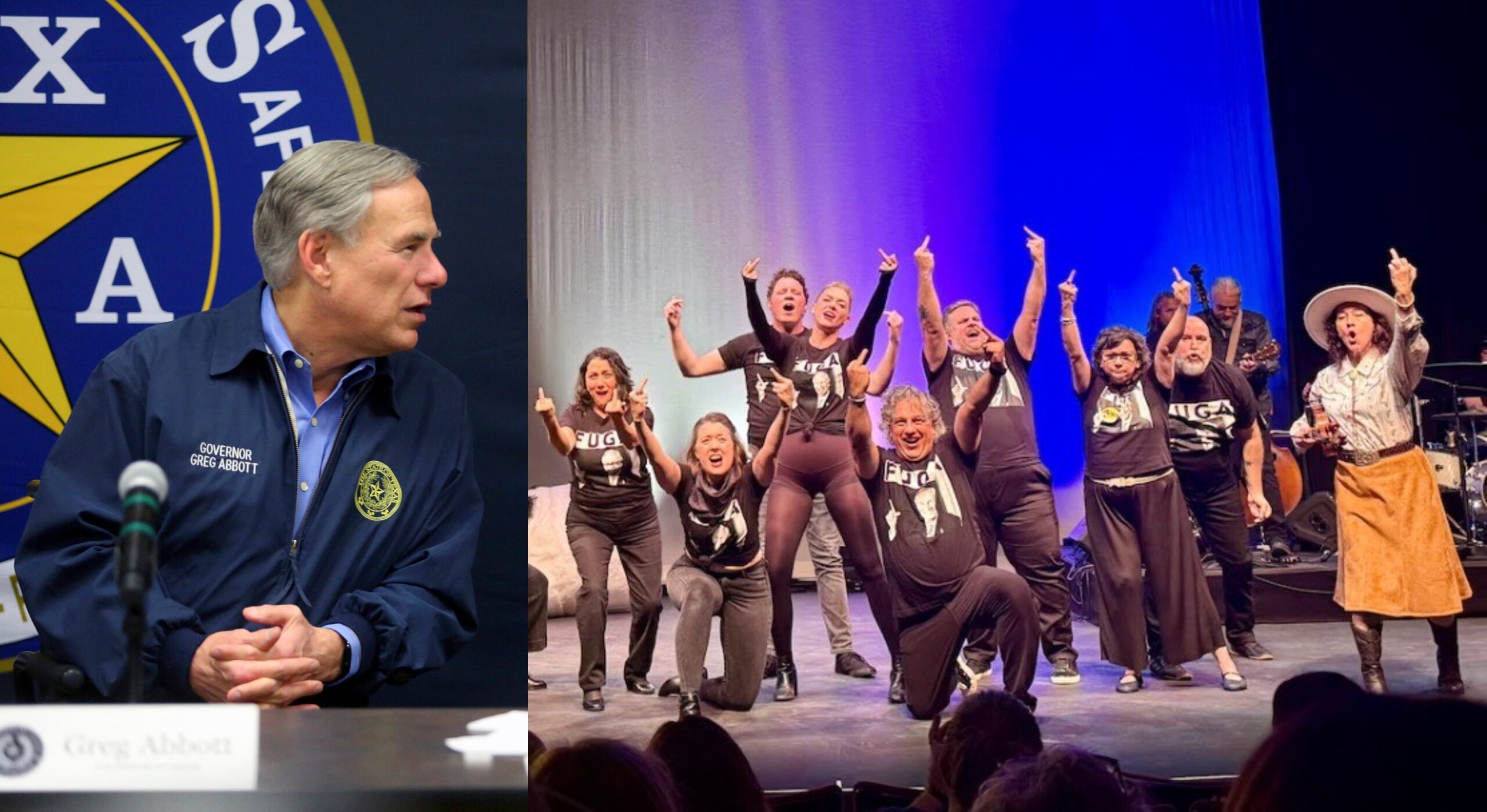
Texas Juvenile Justice System Loses an Advocate, Gains Another Career Cop
Advocates fear Abbott’s replacement of juvenile justice watchdog hints at new “law enforcement approach” to transparency at the troubled agency.

Lawmakers and advocates have loudly demanded changes at the Texas Juvenile Justice Department (TJJD) since the beleaguered agency’s latest high-profile embarrassment, a sex scandal involving guards and youth offenders at the Gainesville State School, broke into the open late last year.
This week, the ongoing shakeup at the agency claimed Debbie Unruh, the juvenile justice system’s ombudsman, someone who advocates say has been key in exposing serious problems at Texas’ youth lockups over her past eight years at the post. On Wednesday, roughly a month after Governor Greg Abbott asked the Texas Rangers to investigate misconduct at the state’s juvenile lockups, he plucked one from their ranks to replace Unruh.
JD Robertson, a peace officer who spent 27 years with the Texas Department of Public Safety, retired as commander of special ops for the Texas Rangers where he oversaw bomb squads, reconnaissance teams, crisis negotiations and “border security operations,” according to a press release from the governor’s office heralding his appointment to Unruh’s old job.

Some have speculated Robertson’s appointment as ombudsman is “retaliation” against Unruh for so publicly airing the agency’s dirty laundry — which, as I reported earlier this month, is pretty much hiding in plain sight for anyone willing to read her office’s monthly reports on conditions inside Texas’ youth lockups. Will Harrell, the former ACLU of Texas director who became TJJD’s first ombudsman in 2007, remarked, “This very much looks like a case of shooting the messenger.” Texas criminal justice guru Scott Henson even wrote a limerick about it at his closely followed blog Grits For Breakfast.
Unruh hasn’t responded to the Observer’s requests for comment.
Michele Deitch, a University of Texas juvenile justice expert, called Unruh’s ouster “a devastating loss for the youth who are incarcerated.” Deitch also says Abbott’s replacement of Unruh with a career cop may reveal what she calls “a mistaken impression about what the ombudsman’s role is supposed to be.”
Deitch, who has advocated for juvenile justice reforms in Texas for years, says the scandals of the mid 2000s that led to the imploding of the old Texas Youth Commission also prompted the creation of both the Office of Independent Ombudsman and an Office of Inspector General at the agency. The former, which Unruh ran since 2010 after being a jail administrator in Randall County, is the public’s eyes and ears, sending investigators into youth facilities on a monthly basis to talk with offenders and staff. The resulting reports gave the public a window into the agency that never existed before.
Some have speculated Robertson’s appointment as ombudsman is “retaliation” against Unruh for so publicly airing the agency’s dirty laundry.
Sometimes those ombudsman site visits flagged potential criminal violations, like allegations of guards putting out “hits” on young inmates. Oftentimes, they provided close-up examples of fundamental problems that continue to roil the agency — such as staffing shortages that periodically lead to canceled or shortened therapy sessions for youth offenders. Allegations flagged by Unruh’s reports sometimes landed before the agency’s Office of Inspector General, which is responsible for investigating employees accused of crimes, mistreatment, neglect, exploitation or fraud. That office has led the recent investigations into several current and former TJJD employees accused of crimes ranging from sex with youth offenders to tampering with evidence and excessive force.
While the inspector general’s mandate at TJJD is direct (investigate bad, potentially criminal things), Deitch describes the agency’s ombudsman as occupying a more Sisyphean role, one where they point out problems they’re essentially powerless to fix. “If Debbie brought to light problems of youth violence or youth not getting services and programs, she couldn’t demand that those things get fixed,” Deitch told me. “It was her job to report these things, and the job of the people in power to address them.”
“It looks like there may be an assumption that the role of the ombudsman is to investigate and have a law enforcement approach to these problems,” Deitch said of Unruh’s recent replacement by a longtime Texas Ranger. “That’s not the job of that office.”
Harrell, who preceded Unruh, says the ombudsman is forced to toe a fine, awkward line because of how the position was set up. “It’s not a comfortable position to be in as someone appointed to serve the governor who’s supposed to be a critic of another governor’s appointee (the juvenile justice system director),” Harrell said.
“In the best of worlds, it could work,” Harrell said. “But then you get situations like this, where one hand embarases the other and they both get chopped off.”


